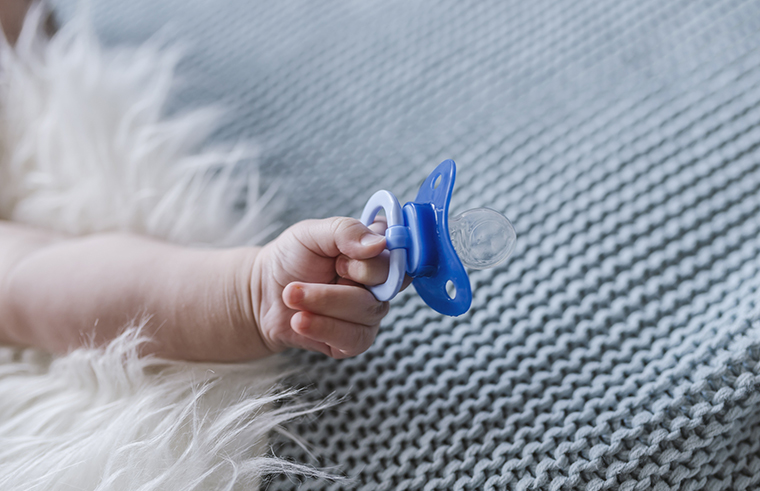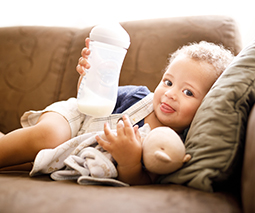Good news: It turns out dummies aren’t as bad as you think

Forget what that little voice inside your head tells you about dummies because as it turns out, they aren’t as bad as people think.
Ever stared longingly at dummies in the supermarket and thought maybe THAT was the sleep solution your bub needed? Yep, me too.
But every time I flirted with the idea, I’d meet an angry barrage of shouty thoughts: “Dummies stifle their emotions!” and “They’ll ruin their teeth and speech!”
After all, that’s what people tell you, right?
Listen to Dr Elise Baker on Feed Play Love:
Well as it turns out, that’s not exactly true
According to research by the University of Sydney, there is no correlation between dummy use and speech problems in children.
Dr Elise Baker, the lead researcher in this study, has worked in the field of speech therapy for the last 20 years. She says the most common type of speech problem in children is ‘phonology impairment’.
“This sounds very technical. But phono means sound. And ology means knowledge. Knowledge of sounds is what children need most when they’re learning to talk,” says Elise.
“Take a word like spaghetti. Your one-year-old won’t say the word perfectly, but they’ll find very cute ways of simplifying tricky words. As children get older, they learn grammar and rules about language and the sounds that make up our words, in English.”
When a child is struggling to figure out the rules around which sounds go with which words, that’s when they experience phonology impairment.
“We call this a speech impediment, and the symptom is that the child’s speech is difficult to understand.”
In the University of Sydney research, Elise and her team looked at the use of dummies in relation to this impairment.
“We recruited 199 children from in and around Sydney. A portion of these children had phonology impairment and the rest of the children had no problem at all,” says Elise.
“We asked their parents about their child’s sucking habits – everything from breastfeeding, bottle feeding, dummies and thumb-sucking. And around 1 in 2 children had used a dummy, and the same number didn’t. So there was literally no association.”
The researchers also tested if the use of a dummy made the children’s speech impairments worse.
“Again, we found no clear relationship,” she says.
So what does cause speech issues?
“That’s the holy grail for speech pathologists!” says Elise. “Certainly children born with a cleft palate, or are born deaf have a high risk of speech problems. Particularly if those problems haven’t been picked up at birth. But they are a small number of children. So it’s a frustrating problem for parents who actually don’t know what causes it.”
The good news, of course, is that if you’re using the dummy to settle your little one, you can stop worrying that it will be doing them any lasting damage.
Yes, there’s bound to be some happy toddlers out there when you share that news!
 Need some more speech and language development advice? Our Parent School experts can help. Click to find out more or book a one-on-one screening call with a speech pathologist.
Need some more speech and language development advice? Our Parent School experts can help. Click to find out more or book a one-on-one screening call with a speech pathologist.









